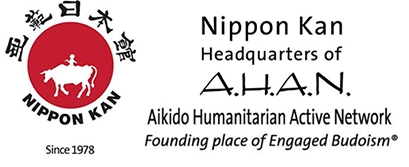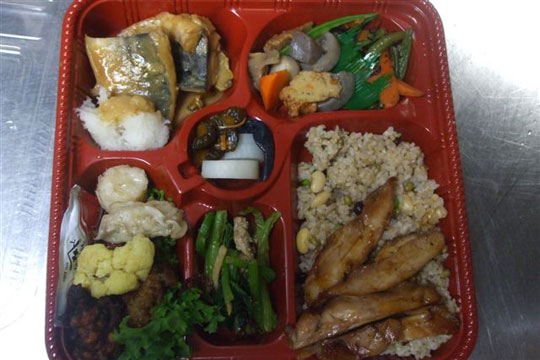Sept 6th, 2008
Written by Brian Grabowski
A troupe of young Korean artists, The Korean Traditional Arts Performers from Los Angeles performed at the Denver Center for Performing Arts this past September 6th. Over 2,500 people came to this performance of traditional Korean theater and musical arts. Homma Kancho met the troupe coordinator by accident, but soon found through conversation that they both had similar attitudes towards the preservation of cultural tradition. The coordinator spoke: “I want Korean young people to be exposed to the traditional arts of Korea before these arts completely disappear; that is why we are doing these performances around the country. I want the young to identify with these arts as part of their heritage.” Homma Kancho smiled and said in agreement that his goals with Nippon Kan were the same; that one of his purposes was to spread an understanding of the Japanese culture.
In support of these Korean artists, Homma Kancho made Domo box dinners for the entire troupe of 40 performers and support staff for the night of the performance. Homma Kancho told me after the performance, “There are over 50,000 Korean native and second or third generation Korean Americans living in Denver today. We have many Korean customers that frequent Domo Restaurant, and we have Korean people on our Domo staff. Domo also shops for fresh produce and other Asian foods at one of the large super-sized Korean markets in town. In Denver, the Korean people have made a powerful impact and are doing very well as a community. Nippon Kan also has ties to Korea through our association with Korean Aikikai President and Chief Instructor Ikam Yoon Sensei. I have visited their dojos in Seoul and other parts of Korea as part of our cross-cultural friendship. People from different cultures, especially people from different cultures that live in the United States need to help each other to reach the shared goals of success and happiness. It is especially important for Asian people who are minorities in the US to share their talents and resources with each other. I will do whatever I can to support efforts to ensure that today’s young people do not forget their own countries identity and heritage. The least I can do is offer the foods from my restaurant towards this effort.”
I have traveled with Homma Kancho to many countries, most memorably, Bangladesh. While in Bangladesh we visited an orphanage for girls outside of the capital city of Dhaka. I remember on that visit when Homma Kancho decided to support the orphanage with monthly donations of rice. After spending only a little time at the orphanage, Homma Kancho promised the elders in charge that we would pledge to have rice delivered to the orphanage every month. After we left, Homma Kancho turned to me and said, “Where we are going to get the money for this, I wonder! I think if I go to the sushi bars less often, I can save enough money every month to cover this donation!” I have always marveled at how Homma Kancho makes some of his decisions on the spot, and at the firm commitment he makes towards honoring his promises.
At Nippon Kan General Headquarters, some of our activities to promote cultural awareness have been to support the performing arts. To date, Nippon Kan has coordinated an international concert series featuring a world-famous Japanese taiko drumming group with concerts in the US, Brazil, Turkey and Colombia. We have also coordinated concert tours to Japan for US Native American dancers, and a traditional blue grass band and, in support of Mongolian performing artists, Nippon Kan has coordinated a performance series in the US for traditional Mongolian musicians and supported the teaching of the traditional Mongolian morin hur (string instrument) locally at Nippon Kan Headquarters.
Attending this Korean performance was an enjoyable experience, reinforcing what Nippon Kan stands for in the way of cultural exchange and awareness through the performing arts.
Written by Brian Grabowski
AHAN International Assistant Director


